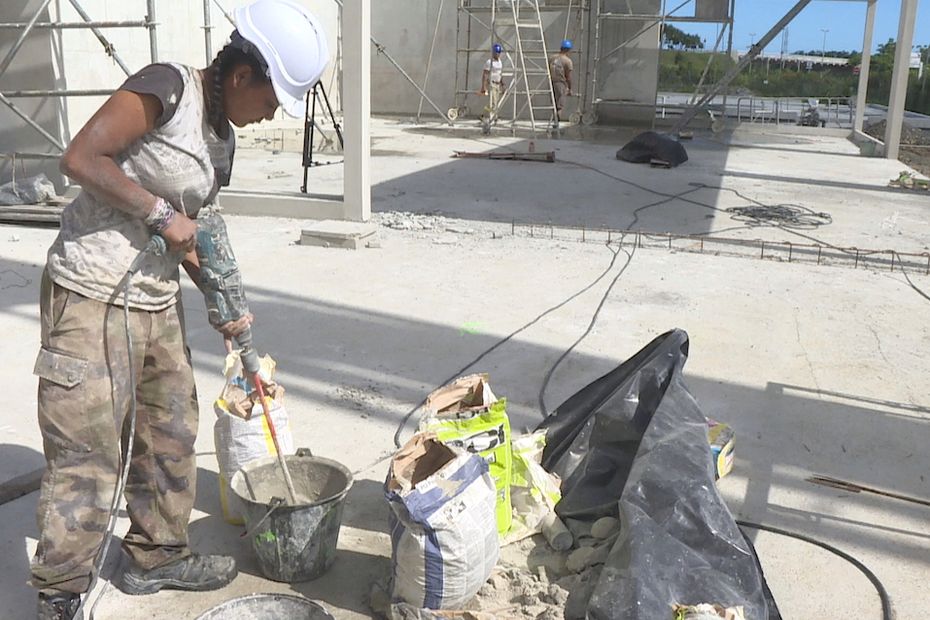The freedoms taken with payment deadlines, between companies or between public authorities and companies, have become very worrying. Pointed out by the competition authority and a study by the IEOM, these largesse weighs down the economy a little more. Like the construction industry, already in the midst of a crisis.
–
•
Site visit with Benoît, manager of a medium-sized construction company. This private project is a boon for his company. But for this one contract, he had to invest, four months ago, fifty million francs in various materials and costs. Part of its working capital.
“We are at 80% progress of the site and the invoicing, it follows”, he explains. “We paid for all our materials: concrete, scrap metal, machine rentals, etc.”
Distributors too
The materials for the building are imported from Europe, but also from Asia. Distributors, often importers, also experience delays between sales and supplier payments. With the quantities of stock needed, and the delivery times, several hundreds of millions of cash advances lie dormant in the docks.
“We need about four to five months of stocks, permanently, of our turnover to be able to operate in Caledonia”, explains Laurent Vircondelet, importer-distributor of building materials and president of the union of importers and distributors.
“We have payment terms, with our suppliers, which are agreed, on account openings and GTC [conditions générales de vente]. But after that, all that comes out of Asia is cash payment. Sometimes two months to two and a half months go by before we have the material that has been paid for. “
It passes … or not
When all goes well, the project manager pays the contractor, who pays his supplier, on time. The economy is running smoothly. “It’s a project that will last five months, we will be paid in five installments. The customer is a good payer, we are paid in thirty days, roughly”, quotes our manager, Benoît Meunier.
Except that, often, the reality is quite different. If you have to pay the bills and pay the charges, cash flow can be more of a problem.
It could be sixty days, 90 days. We can reach 120 days with the communities. And we often have difficulty making us pay the final and final accounts. There, it can go up to a year in some cases, with the administration.
Administrative slowness
To the point that this SME has decided to turn its back on public markets, which represented 40% of its turnover. These communities are the government, the provinces and the municipalities. An administrative world which must, it is true, obey specific regulations.
“In public procurement, there is the regulatory part that exists. But afterwards, there are a lot of intermediaries: design offices, site managers, companies …”, restores the mayor of Dumbéa, Georges Naturel. “All these elements must be done in a regulatory manner, so that we can settle this invoice, otherwise the payer will not accept it.”
Private fines
The Competition Authority took up the case and fined some very large companies which thus abused their dominant position. The administrations are not of its competence. It nevertheless warns of the consequences of such abuses.
“If the public sector does not pay enough on time, this can discourage SMEs in particular from participating in calls for tenders. It reduces the scope of companies that will participate in this call for tenders”, analysis Aurélie Zoude-Le Berre, President of the Competition Authority. “And suddenly, that puts them in the capacity to offer, certainly, higher prices. Or, in any case, it brings together the capacity of the public purchaser to arbitrate with several offers.”
Inflationary risk
For businesses, the inflationary risk is obvious. Especially since in these times of crisis, finances are at their lowest. “We are endangered”, insists Laurent Vircondelet. “Hence, afterwards, negotiations with our bankers, since we are paying all this cash, with aggios, interest. So an additional cost for the company.”
Some businesses may not have significant cash flow and are in trouble. It can go to liquidating and shutting down the business. For cash flow reasons.
A shortfall estimated at 23 billion
According to the IEOM – Overseas Issuing Institute, strict compliance with the law in this area, ie thirty days of time, could free up 23 billion francs in cash. A real breath of fresh air for companies.
A report by Bernard Lassauce and Carawiane Carawiane:
–


